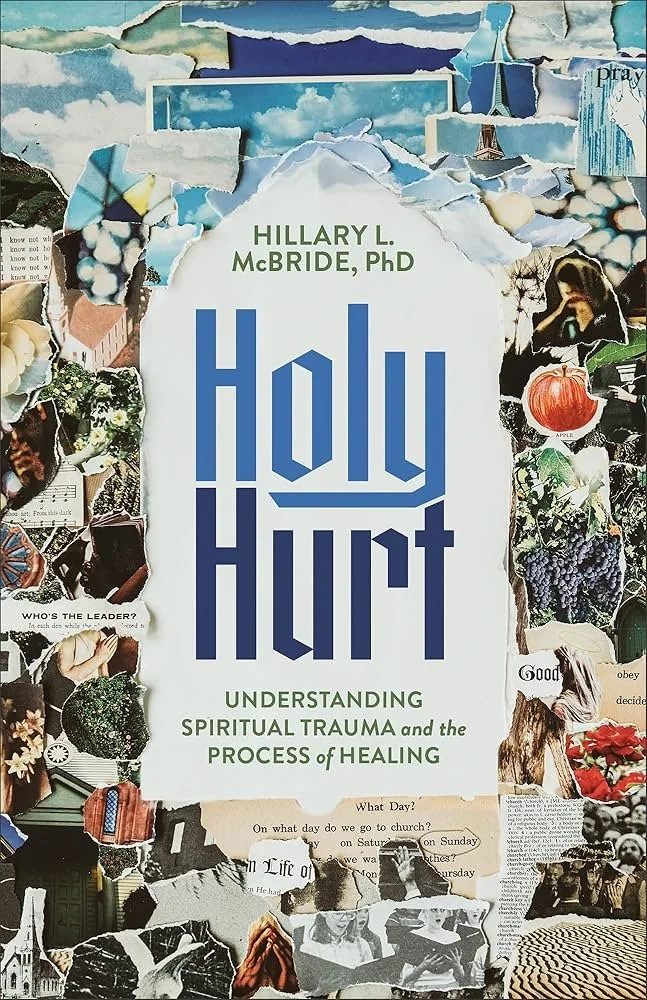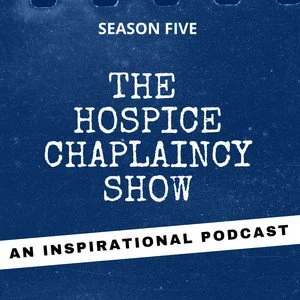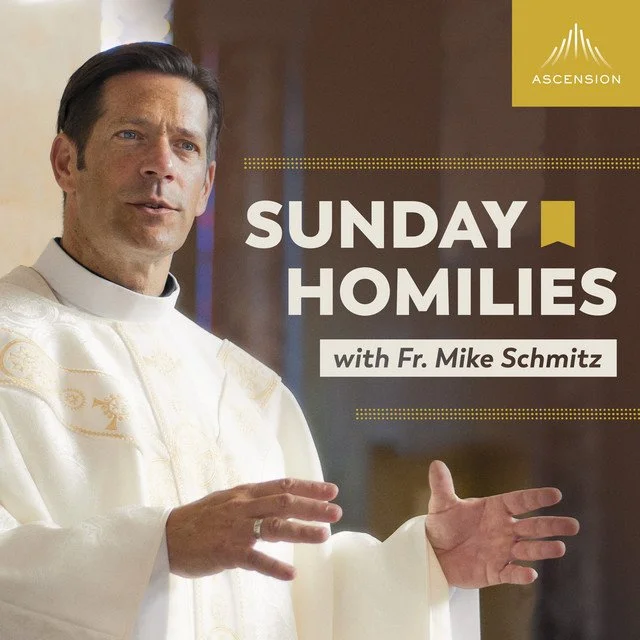For the Work of Chaplaincy: Resources to Support You
As conversations about the role of chaplains grow—particularly in light of recent reflections on the evolving landscape of spiritual care—we want to offer something practical: a growing list of resources to sustain and inspire you.
This list is not exhaustive—but it's a start. And we hope you'll help us build it.
Books
Trauma in the Pews: The Impact on Faith and Spiritual Practices
Janyne McConnaughey - 2022
TRAUMA IN THE PEWS is a practical and compassionate roadmap for spiritual leaders to effectively minister to those struggling with effects of trauma. In spite of the challenges of our increasingly complex world, together we can create safer spaces for authentic healing and a deeper connection with God.
Very few come through life unscathed by some form of trauma. It’s been established through countless studies that well over half of the American population has endured significant trauma by the age of eighteen. Since many turn to faith communities in times of crisis, it’s reasonable to assume that there is an even higher percentage of trauma survivors among congregants. Without the right tools, it can be difficult to recognize or respond to those suffering in the pews.
Faith leader, trauma survivor and trauma informed expert, Janyne McConnaughey, PhD, brilliantly combines personal stories, insight and current research to equip readers to:
· Recognize the effects of trauma on the brain and body
· Understand the impact of trauma on common spiritual practices
· Support the healing of those who have been impacted by trauma.
Spiritual Care: The Everyday Work of Chaplains
by Wendy Cadge, 2022
Chaplains are America's hidden religious leaders. Required in the military, federal prisons, and Veterans Administration Medical Centers, chaplains also work in two-thirds of hospitals, most hospices, many institutions of higher education, and a growing range of other settings. The chaplains of the U.S. House and Senate regularly engage with national leaders through public prayer and private conversation. Chaplains have been present at national protests, including the racial justice protests that took place across the country in 2020. A national survey conducted in the United States in 2019 found that 21% of the Americans public had contact with a chaplain in the prior two years. Contact with chaplains likely increased with the COVID-19 pandemic, which thrust chaplains into the spotlight, as they cared for patients, family members, and exhausted and traumatized medical staff fighting the pandemic in real time. Wendy Cadge steps back to ask who chaplains are, what they do across the United States, how that work is connected to the settings where they do it, and how they have responded to and helped to shape contemporary shifts in the American religious landscape. She focuses on Boston as a case study to show how chaplains have been, and remain, an important part of institutional religious ecologies, both locally and nationally. She has combed through the archives of major Boston institutions including the city government, police and fire department, hospitals, universities, rest and rehabilitation centers, the Catholic church, and several Protestant denominations, as well as the Boston Globe, to chart the work of chaplains historically. Cadge also interviewed over one hundred chaplains who work in greater Boston and shadowed them whenever possible, going on board container ships, walking through homeless shelters, and attending religious services at local prisons. The result is a rich study of a little-noticed but essential group of religious leaders.
Find it Here
Holy Hurt: Understanding Spiritual Trauma and the Process of Healing
By Hillary McBride, 2025
Too often the institutions and communities that are meant to be the most holy in our lives end up deeply hurting us.
In Holy Hurt, clinical psychologist Hillary L. McBride sends a sincere and profound message: spiritual trauma is real and has a far-reaching impact. She also reassures us that we can remake ourselves and heal in its aftermath.
McBride expertly and compassionately shows that acknowledging the impact of spiritual trauma in our lives allows us to begin to tend our wounds individually and collectively, experiencing reconnection with ourselves and others. She draws on clinical research, trauma literature, insightful interviews with experts, and poignant first-person stories, ending each chapter with a short practice to begin healing.
McBride empowers those who have lived through spiritual trauma or witnessed it, as well as those who want to develop healthier church environments and prevent abuse.
Interfaith Ministry Handbook: Prayers, Readings and Other Resources for Pastoral Settings
Matt Sanders - 2017
Do you minister to people of different faiths? The Interfaith Ministry Handbook is a resource to help you do it well.
If you are a minister who cares for people of many faith traditions, you have probably had the experience of encountering someone from a tradition with which you are not familiar. What do you say? What words do you use to pray? What readings will this person find comforting or helpful?
The Interfaith Ministry Handbook contains prayers, blessings, and readings from a variety of faith traditions and languages. It has been compiled specifically to support chaplains who work in interfaith and intercultural settings.
The Interfaith Ministry Handbook contains prayers and readings appropriate for: Jews, Christians, Baha’i, Buddhists, Hindus, Muslims, Sikhs and more.
In addition, the Handbook offers prayers in languages other than English, as well as prayers for specific needs in hospital settings, including:
Communion at the bedside, Baptisms and blessings for newborns, Prayer following the death of a baby, Prayers before and after surgery, Prayers for the dying and at the time of death, Prayers for caregivers and those who mourn, …and many other resources.
This collection was compiled by Chaplain Matt Sanders, who currently serves as a staff chaplain at Mercy San Juan Medical Center in Carmichael, California.
Trauma-Informed Pastoral Care: How to Respond When Things Fall Apart
Karen A. McClintock - 2022
Clergy are more likely than ever to be called on to respond to community trauma, sitting alongside trauma survivors after natural disasters, racial violence, and difficult losses. In Trauma-Informed Pastoral Care: How to Respond When Things Fall Apart, pastoral psychologist Karen A. McClintock calls clergy to learn and practice "trauma-informed care" so they can respond with competence and confidence when life becomes overwhelming.
Weaving together the latest insights about trauma-informed care from the rapidly shifting disciplines of neuropsychology, counseling, and theology, she explains the body's instinctual stress patterns during and after trauma, guides readers through self-reflection and self-regulation in order to care for others and lower the risk of obtaining secondary trauma, and suggests culturally sensitive models for healing from overwhelming experiences.
McClintock particularly attends to the fact that across a lifetime in ministry, clergy accumulate and need to regularly heal multiple traumatic wounds. As a pastor and psychologist, she is perfectly positioned to help clergy recognize symptoms of trauma and commit to healing individual, community, and generational trauma with care and cultural sensitivity.
Podcasts
Hospice Chaplaincy Show
About the Show: A show about the psycho-spiritual aspects of end of life care. On the Hospice Chaplaincy Show, you will hear stories of experts in the field of end of life care and grief counseling. This fun and educational podcast explores their life stories and theories of practice.
Everything Happens with Kate Bowler
About the Show: Honest and theological reflections on suffering, hope, and what it means to live well. Duke Professor Kate Bowler is an expert in the stories we tell about success and failure, suffering and happiness. She had Stage IV cancer. Then she didn’t. And since then, all she wants to do is talk to funny and wise people about how to live with the knowledge that, well, everything happens.
Sunday Homilies with Fr. Mike Schmitz
About the Show: Every week, Catholic priest Fr. Mike Schmitz delivers powerful homilies based on the Sunday Mass Scripture readings, inviting you to live more fully as the person God created you to be. Engaging and motivating, these 20-30 minute homilies will help ground your faith, fortify your heart, and transform your life. Fr. Mike Schmitz preaches from Duluth Minnesota, where he serves as the Newman chaplain for University Minnesota Duluth’s Bulldog Catholic campus ministry.
Organizations & Communities
Canadian Association for Spiritual Care / Association canadienne de soins spirituels (CASC/ACSS)
CASC/ACSS is the leading national association of spiritual care and psychospiritual therapy in Canada. With over 1200 diverse members across Canada, CASC/ACSS embraces a holistic approach to health and wellbeing, with a special focus on spiritual and religious care. CASC/ACSS provides educational programs for those preparing to become Certified Spiritual Care Practitioners, Certified Psychospiritual Therapists, and Certified Supervisor-Educators in a variety of institutional, community and private-practice settings. We also educate those who are preparing for ordained/commissioned religious leadership to have competence in providing spiritual care to their faith communities.
CASC/ACSS is committed to the professional education and Certification of people involved in spiritual care, psychospiritual therapy, education and research.
Learn More: spiritualcare.ca
Chaplaincy Innovation Lab
The Chaplaincy Innovation Lab (CIL) launched in October 2018 to bring chaplains, theological educators, clinical educators and social scientists into conversation about the work of chaplaincy and spiritual care.
As religious and spiritual life continues to change, the CIL sparks practical innovations that enable chaplains to nurture the spirits of those they serve and reduce human suffering. Our work is shaped by four central commitments maintained by all who are connected to CIL.
Learn More: chaplaincyinnovation.org
Shalem Mental Health Network
The Shalem Mental Health Network has been providing biblically-informed, professional care and counselling since 1963. Rooted in the Hebrew word shalem—meaning wholeness, peace, and restoration—Shalem supports individuals, organizations, and communities in their journey toward flourishing. Their work is guided by values of hope, inclusion, relationships, partnership, professionalism, and stewardship, all motivated by the compassionate love of God. Through counselling, restorative practices, education, and community programs, Shalem seeks to restore hope and promote mental and spiritual well-being.
Learn More: shalemnetwork.org
Tell Us What You’re Using
This list is just the beginning—and we know many of you have other resources that have shaped your work.
What books do you keep returning to?
What tools help you navigate challenging conversations?
Is there a resource you wish existed?
We want to hear from you. Email us or leave a comment below to help expand this list. We’ll keep updating it for the benefit of our Ministry Forum community.











